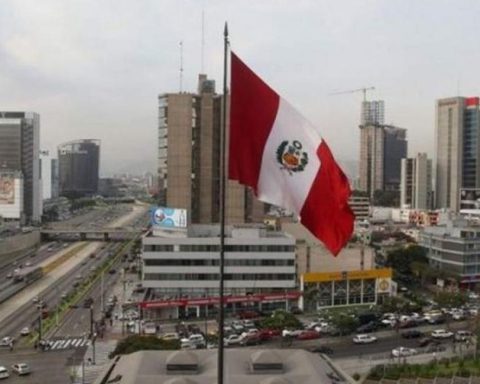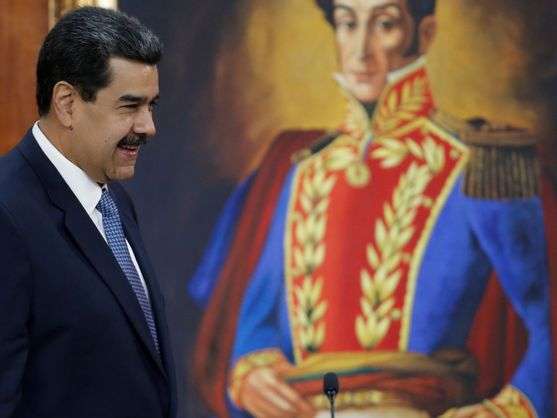The sticky Carlos Ezeta is a purple candidate, the anonymous cone thrower is a living meme, the screaming pastrulo from La Noche is a Barranco idol and the lyncher from Discophobia has her identity protected, despite the complaint at a police station. This is how the double standard works when it hits a right-wing politician in Peru.
CASTLING
And yet, for some time now, the right has learned to use the methods that the left used to fight against the streets and public opinion. There were years of seeing the banners in the marches against Fujimori, the giant rats, the eggs crashing against Raúl Romero’s car and the garbage bags thrown at the houses of the Fujimori Marthas. They learned something from that Peruvian prehistory of breading.
It seems logical, because when the left finally arrived at the Palace, in 2021, the right took to the streets to whistle. Something that had not been seen since the demonstrations against the nationalization of banking in the late 1980s.
But this castling has not only been ideological, it has also been generational. Just as the Bicentenario generation complained about the “dinosaurs” of former president Manuel Merino, the new right took the place, from the Republican Coordinator to La Resistencia, passing through Los Combatientes and La Insurgencia.
At the beginning they were more like monses. More brutal than stupid, denying the DBA name. The marches against Castillo seemed like Wong’s privateers. There were candlelight vigils, singing balloons that were sent to the sky, torches from the Waikiki Club, and speakers that didn’t warm up the plaza. There were plenty of vans with expensive sound equipment and operators who lived off the scared aunts who watched Willax. And, above all, there was a lot of budget, a lot of money but few results. Marches without mystique or destruction. There were activists without epic, well-dressed children with ‘fajas’ and pituco university students who had never tasted the smell of tear gas in the morning in their lives.
THE PESTILENCE
Over time, the right-wing marches became louder. The A of the DBA was felt in the streets and squares. To counter them, the progressive left underlined the B and used its preferred class argument: culture.
In the public eye, The Resistance became The Pestilence. And it is mentioned holding one’s nose. According to the caviar narrative, La Pestilencia defends chicha universities and cackles about communism without having read about it. The brute right only steps into bookstores and Book Fairs to protest there and throw tomatoes at Sagasti or Olivares.
The left exaggerated the harmful effects of The Pestilence. His narrative turned four unruly cats into a fascist cell. Within that logic, the funa with tomatoes at the El Virrey bookstore where Vladimir Cerrón was announced was almost like Kristallnacht.
In the 2021 campaign, progress drew the line. While the right voted for their pockets, the left voted for memory and dignity. That is, by the post-material values of good people, of decent people who do not only think about their pocket (perhaps because they do not need it). Criticism of the right-wing demonstrations came from the new “decent people”, the “good people” who vote for moral values, wrinkling their noses at The Pestilence.
Like the “gentita” or the GCU, ‘caviar’ is an aspirational concept. Being caviar is an ethical issue rather than an ideological one. It is not political: it is moral. It is not class struggle: it is class. It is not Marx, but China Tudela. Therefore, saying ‘caviar’ to the left-handed activist is not insulting him, but rather whitewashing him, giving him the status of a cultured and decent person with an avenue surname. And that is why the left wins the debate and has a quasi-monopoly on outrage and protest.
For example, a button. Today, the garbage bags from the protests against the Fujimori dictatorship are part of the exhibition “Put the garbage in the garbage”, by the Civil Society collective, once exhibited at MALBA with text by Gustavo Buntinx. The difference is not political, but ethical and aesthetic: the protests of the left are art. The ones on the right, trash.
A VIOLENT HISTORY
Fortunately, the ideological struggle is being balanced. The Chilean funa and the Argentine escrache are done by both the left and the right. Perhaps Milei is the most eminent example of “libertarian populism”, a beautiful oxymoron that has stolen the formats of the most shirtless Peronism. And in Peru things are similar. In the era of perpetual protest, the only law that prevails is the law of the street. And the street belongs to everyone, as usually happens.
The digital highway also plays its part. The new demonstrations no longer only involve marching and protesting, putting up banners and sit-ins. Now attacks are also going viral, there is digital bullying and trolling is rampant. It is blocked, made invisible and the digital laptop is sent away. There is a ‘hashtag’ at dawn, a pogrom 2.0 is set up or a complaint of virtual harassment is filed. Calls to boycott programs or channel advertisers. You are advised to turn off the TV or laptop. They are urged not to buy a certain product, not to go to a particular store or even not to see a certain journalist. And, above all, political rivals are culturally canceled, no matter what.
But it’s not like the old supermarket slap is gone. From time to time the traditional spitting on Nixon, the insult in the line or the conchatumadre in the coffee returns. Perhaps because, if we talk about violent actions, these have been in our family genetic chain for decades. We would have to go back to the fights between ‘buffalos’ (APRA), ‘coyotes’ (Popular Action), ‘chitos’ (PPC), without leaving aside the Odriíst thugs, the ‘rabanos’ and the ‘reds’ of Civil Construction of the last century. As almost a hundred years ago, partisan violence is felt in the streets and politicians are imprisoned without sentence.
RECOMMENDED VIDEO
















